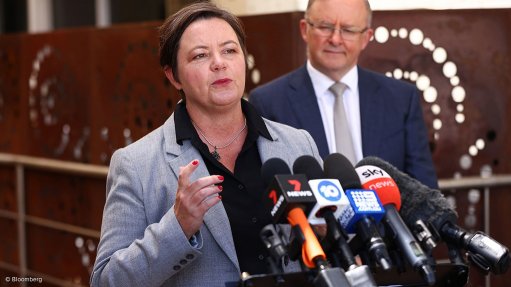
Resources Minister Madeleine King
Resources Minister Madeleine King has reaffirmed Australia’s dedication to the traditional resources sector and the burgeoning critical minerals industry, emphasising the role that the mining industry plays in powering the nation’s economy and its significance on a global scale.
Speaking at the International Mining and Resources conference, she stated, “I see it being nothing short of a national mission to ensure our critical minerals are mined to meet domestic and international demand, as well as being processed here in Australia.”
King underscored the substantial strides made in recent international engagements, including discussions with European nations and a meeting in Washington with US President Joe Biden, all aimed at advancing Australia’s critical minerals sector.
These efforts, combined with the decision to double the capacity of the critical mineral facility, represent significant steps taken by the government to meet the surging global demand for these vital resources. As nations worldwide seek access to Australia's bountiful reserves of critical minerals and rare earths, there is also a growing interest in developing closer-to-home alternatives.
In this context, Australia must seize the opportunity, enhancing its reputation as a dependable, stable and ethically responsible resource supplier, the Minister said.
The release of the Critical Minerals Strategy in June was a testament to the government's commitment to establishing Australia as a global leader in the production of both raw and processed critical minerals by 2030. This strategic move is poised to bolster the nation's role in supporting diversified, resilient and sustainable supply chains on a global scale.
Australia, as the world’s biggest producer of unprocessed lithium and a major producer of hard rock lithium, is expected to export up to A$16-billion this year of lithium. The nation also ranks as the world's third-largest cobalt exporter and the fourth-largest exporter of rare earths.
King highlighted the necessity of combining critical minerals with Australia’s abundant traditional commodities such as copper and nickel to produce the products the world needed to decarbonise.
Further, Australia’s iron-ore and bauxite, essential for the steel and aluminium industries, are crucial for building electric vehicle factories and infrastructure of a decarbonised global economy.
Steel is also the main material used in delivering the renewable energy sources of solar, tidal, geo-thermal and wind. It also plays a key role in supporting and enabling infrastructure like transmission networks.
“To make steel at scale you still need to buy iron-ore and metallurgical coal, which our nation has in abundance. About half of our coal exports are of this type, helping our trading partners build essential infrastructure, including for renewable energy. Australia's resources will contribute to realising our own green energy aspirations and those of our regional neighbours,” she said.
King also highlighted the role of natural gas in supporting the security and reliability of the country’s electricity grid during its transition to net zero.
“Gas is needed to support renewable power generation in the national electricity market. Gas will also be needed to ensure the processing and refining of critical minerals and railroads required for green energy technology. Australia's gas resources will also continue to be a reliable source of energy security for our trading partners for a long time to come.”